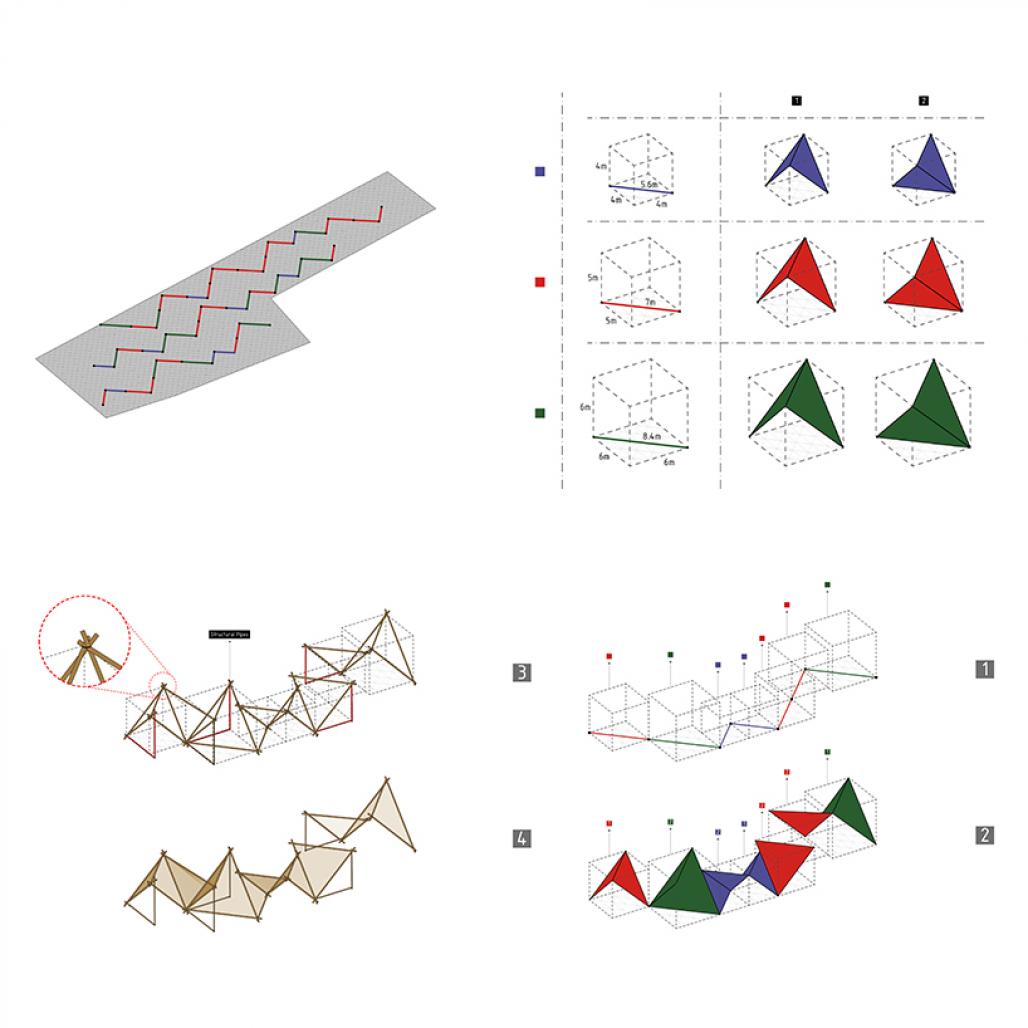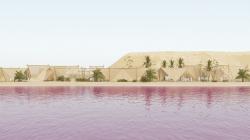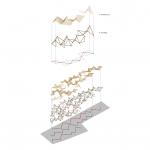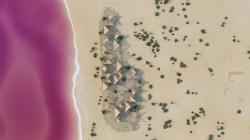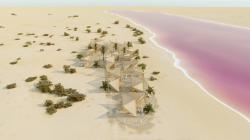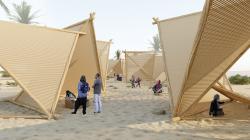Architectural design in some regions with indigenous culture and lifestyle, is a challenge and is like acrobatic moves on a narrow rope.
The project was defined as the design of a bazaar for local vendors, most of whom are indigenous girls selling their handicrafts, and the reason for defining the project was the urgent need to provide safe shelter for them.
The "CHAP-RAST" project is located in the "Lipar" region, in the south of Sistan and Baluchestan province and twenty kilometers from the city of Chabahar. The project site has special features that can be attributed to the pristine nature of the region, which includes elements such as: Pink Lake, Oman Sea, etc., and these elements are the main factor in attracting tourists in that region. Due to the presence of natural elements and their vulnerability, the design team tried to create potential in the design to cause the least damage with eco-friendly materials in the project design.
By examining the typology of the houses in the area (shed) which is called caper, a basic pattern of the method of construction and use of local materials in the architecture of the area was obtained. In the southern region of Sistan and Baluchestan province, there are four types of shed typology that are used in Chabahar region, which are different from another regions. In this method, due to the limitation of materials and its inflexibility, which is often made of teak wood, first wooden pillars are placed in to the ground and the pillars are sewn together with wooden beams, and narrower beams are used for retrofitting. finally, the houses are covered with the leaves of local trees.
There was also a need for a familiar pattern in the aesthetic structure and minds of indigenous peoples to create a sense of belonging, so by examining the signs and symbols in the indigenous art of the region, an attempt was made to achieve this purpose. One of the important points in the native signs of the region is the triangle as the main geometric shape, excessive abstraction, the existence of ambiguity in understanding the signs due to abstraction, the absence of a curved line and instead use of straight or broken lines in these signs.
Due to the location of the project construction area which is between the two key elements of the site, namely Pink Lake and Gijdep village, where the Pink Lake has a concept of pristine nature inside, and the village and people's lives are mixed with local art.
From the combination of these two words, nature and art, the concept of "LANDART" was created, which changed the concept of the bazaar as a "LANDART". This concept abolishes the mere nature of being architectural and looks at architecture as an artistic object that is at the same time associated with nature and has a critical view of it. Using the technique of indigenous art, ie sewing, and through the concept of "LANDART", an attempt was made to connect the village to the lake, and this technique evokes a familiar sign in indigenous art, namely the "CHAP-RAST" sign.
Initially, the ZIG-ZAG lines "CHAP- RAST" were abstractly placed on the construction area, and to strengthen the visual and dynamic connection between the village and the lake and to connect the two with another left-right line, other lines were split. In the next step, to systematize the lines, they were given a geometric order based on a defined triangular modulus.
2021
In the next step, with the method of squaring and triangulation, the left-right lines have a three-dimensional nature, and due to the limitations in native materials, different dimensions are considered for triangulations. Creating triangles defines the organization of spaces, and this organization in the project is considered as a free platform that has been used as a potential to meet the social needs and greater comfort of users.
At the end of the left-right triangulation using the native material of each triangle was considered as a wooden frame, which in the next step for shading, the frames are covered with sisal ropes that have high resistance to heat and heat.
Throughout the design team, the designers, with their studies on the context and culture of the region, made every effort to cause the least damage to the environment and the culture of the region, and the project is placed in its context properly, and not only As a significant element, but also tried to highlight the natural and indigenous elements, such as Pink Lake and the village of Gijdep.
Head Architect: Maziar Dolatabadi
Lead Architect: Deniz Ebrahimi Azar
Design team: Reza Valinejad, Hadiis Karimi, Fatemeh Miri
3D Design & Rendering: Saeid Sadeghian
